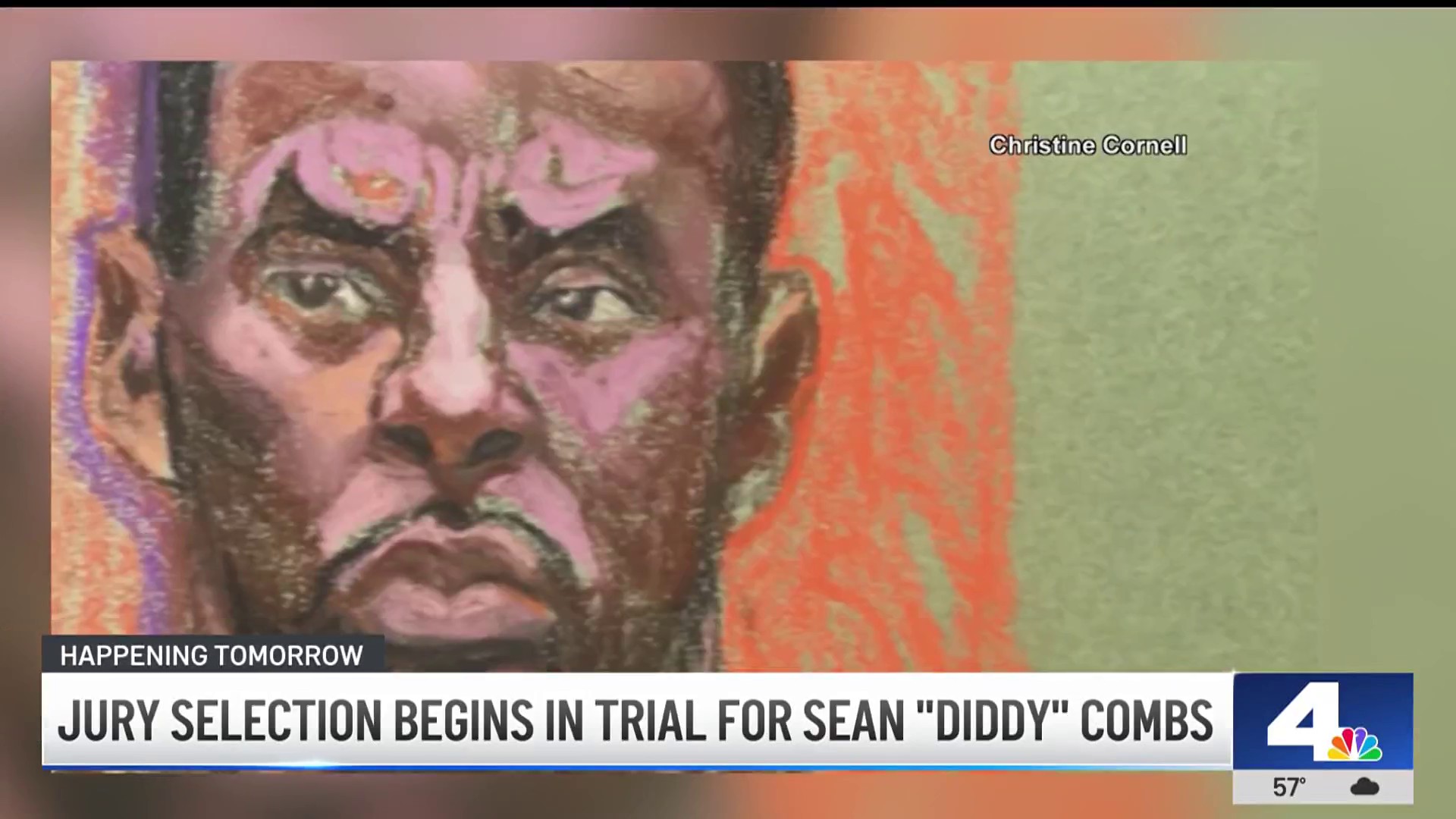
Gianni Van was convicted of the 1995 murder of an Orange County man who he and co-defendants allege raped a friend. Vikki Vargas reports for the NBC4 News at 5 p.m. on May 7, 2015.
A Costa Mesa man was convicted Thursday of first-degree murder for the 1995 killing of a man who the defendant's girlfriend at the time claimed had raped her.
After about six hours of deliberations, jurors also found true a special circumstance allegation that the murder was done during the commission of a kidnapping.
Gianni Anthony Van, 45, is scheduled to be sentenced July 10 and faces life in prison without the possibility of parole for the April 16, 1995, killing of 24-year-old Gonzalo Ramirez. The jury's foreman, Luciano Cid, said the two key witnesses in the trial were Julie Rojas, a girlfriend at the time to one of the co-defendants, and Noel Reyes, Ramirez's boyhood friend, who was with the victim the night of the murder.
Those two witnesses — who were not defendants or otherwise charged in the case — put Van at the scene of the kidnapping and had nothing to gain by their testimony, Cid said. They also corroborated testimony from two co- defendants who took plea bargains to testify for the prosecution. Cid and other jurors also told the attorneys after the verdicts that they believed Van's testimony hurt his defense.
"His testimony, we felt, had too many holes compared to everybody else," Cid told City News Service. Rojas' testimony also was damaging to Van because she put him at the auto repair shop where the victim was taken after the kidnapping, Cid said.
Jurors also told the attorneys they felt it was damning that Van was also along for the ride where the victim's body was eventually found in Irvine. The defendant's attorney, Jeremy Dolnick, said he and his client were "disappointed" in the verdict.
"Gianni had a tough case to fight in light of Norma, Diane and Julie all testifying against him," Dolnick said. "Based upon the contradictions in their testimony among the three witnesses and in light of Gianni's testimony, and the character witnesses who talked about his personality, we felt that there would be enough for reasonable doubt in the minds of the jurors. We are disappointed but understand the reasons for the jury's verdict."
News
Top news of the day
Van had the best motive and means of multiple defendants to carry out the killing, Senior Deputy District Attorney Mike Murray argued.
"Sometimes — rarely — but sometimes the way someone is killed is like a compass pointing to true north," Murray said. "This is one of those cases. The person who killed Gonzalo Ramirez wanted him dead."
Murray pointed out the victim suffered "well over 30 sharp, heavy- blade" cuts.
"The kind of cuts that went through the bone, and almost severed his arm," Murray said. Ramirez suffered a fractured skull and bled to death, Murray said.
Murray cited multiple defensive wounds as he added, "Gonzalo Ramirez had time to fight for his life."
"Even blindfolded he knew it was coming,'' Murray said. "Somebody was angry enough that they kept going."
The victim's body was found the following morning at the San Canyon Road exit of the San Diego (405) Freeway in Irvine. It appears the weapon was a meat cleaver, Murray argued.
Murray argued Van had help from co-defendant Shannon Ray Gries, 44, and Kody Tran, who authorities believe committed "suicide by cop" in a standoff with SWAT officers in Irvine in July 2012.
Van testified that he was "terrified" of Tran to explain why he did not go to authorities with what he knew about Ramirez's murder, Murray said.
"But now (Gries and Tran) are the boogeymen, and isn't it convenient Kody Tran is dead?" Murray said. "Kody Tran can't defend himself because he's dead, another great scapegoat."
Dolnick, tried to poke holes in the testimony of co-defendants Norma Esparza, 40, and Diane Tran, 46, of Costa Mesa.
Esparza and Tran, who was married to Kody Tran, accepted plea deals in exchange for their testimony.
Dolnick also argued that Gries' girlfriend at the time, Rojas, may have shaded her testimony to help prosecutors so she could avoid being charged.
Rojas has never been charged in the case. Dolnick argued Rojas "snorted methamphetamine" the day of the incident so her memory is unreliable, Dolnick argued.
"Julie Rojas has a lifetime of credibility issues," Dolnick said. Esparza claimed Ramirez, who she had met the night before at the El Cortez club in Santa Ana, raped her in her dorm room at Pomona College in March 1995.
The next day, she went to get the "morning-after" birth control pill from a nurse at the college, but did not mention the alleged sexual assault, which would have triggered an investigation, Murray said. Esparza told Van a couple of weeks later she had been raped when they were reconciling in their on-again, off-again romantic relationship, Murray said.
Van then told his friend Kody Tran about the alleged rape, Murray said. Van and Kody Tran devised a plan to stage a traffic crash involving the victim and then abduct him, Murray said.
Van, Kody Tran, Esparza, Gries and Rojas, went to the El Cortez to find Ramirez, Murray said. Esparza pointed out Ramirez and the group followed him when he left the bar, the prosecutor said. A van carrying some of the group deliberately collided with the vehicle Ramirez was in with Noel Reyes, prompting the victim to get out of the car, at which point he was abducted and taken back to a transmission shop Kody Tran owned to be beaten to death, Murray alleged.
As police were investigating, Van and Esparza took a trip to Las Vegas to get married so they could invoke a privilege banning testimony against a spouse, Murray said. The case went cold, but investigators got a break when DNA technology matched blood from the victim to the transmission shop, Murray said.
Van and Esparza ended their "sham" marriage in 2006.
Esparza, a university professor, got remarried and moved with her husband to France on the Swiss border, where they lived with their young daughter.



